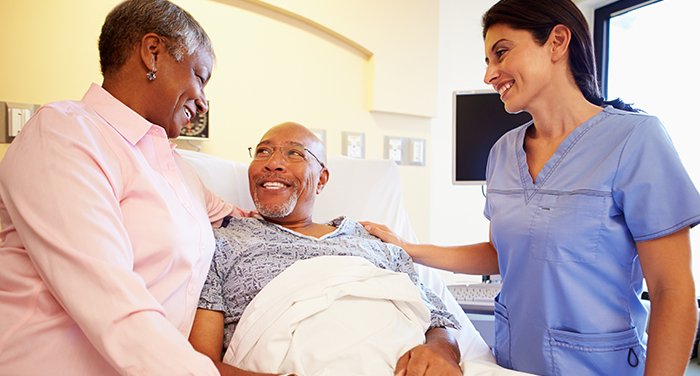
A study recently released in the Journal of the American Geriatric Society conducted a review (meta-analysis) that looked at the results of discharge interventions that specifically included family caregivers. The studies included in this review were published between 1990 and April 2016. Only randomized clinical trials were included (meaning they all had a treatment group and a control group for comparison). This is good science!
Readmissions down by 25%
Overall, patients with family caregivers actively included in their discharge process experienced 25% fewer readmissions within 90 days than did those in the control group. That number held firm even after 180 days (6 months out), when the treatment group had 24% fewer readmissions. Most of the studies in the review also reported significantly lower medical costs for postdischarge care.

Good news for those who were readmitted
Among those who were readmitted, the treatment group had a shorter interval from the original discharge to the rehospitalization than did the control group. Very likely, problems were recognized earlier. Plus there were shorter lengths of stay for the rehospitalizations.
Identifying family caregivers
AARP has long been an advocate for family caregivers and has created supportive legislation that so far has been adopted in 35 states and the District of Columbia. Known as the CARE Act (Caregiver Advise, Record, Enable), it requires hospitals to
- record the name of the family caregiver on the patient’s medical record;
- inform the family caregivers when the patient is to be discharged;
- provide the family caregiver with education and instruction of the medical tasks he or she will need to perform for the patient at home.
Are families being asked to do too much?
On the one hand it’s fantastic to now have science-based backup for what we’ve known all along: family caregivers are key members of the health care team. On the other hand, families are being asked to perform tasks that require very specialized knowledge and skill. Even if they do receive training, it’s a lot of responsibility, with significant consequences if there’s a mistake. But that’s a different article.
For now, let’s celebrate the validation this study brings to the family caregiver’s role. High five to all the families out there who support their loved ones. What you do is extremely important!

